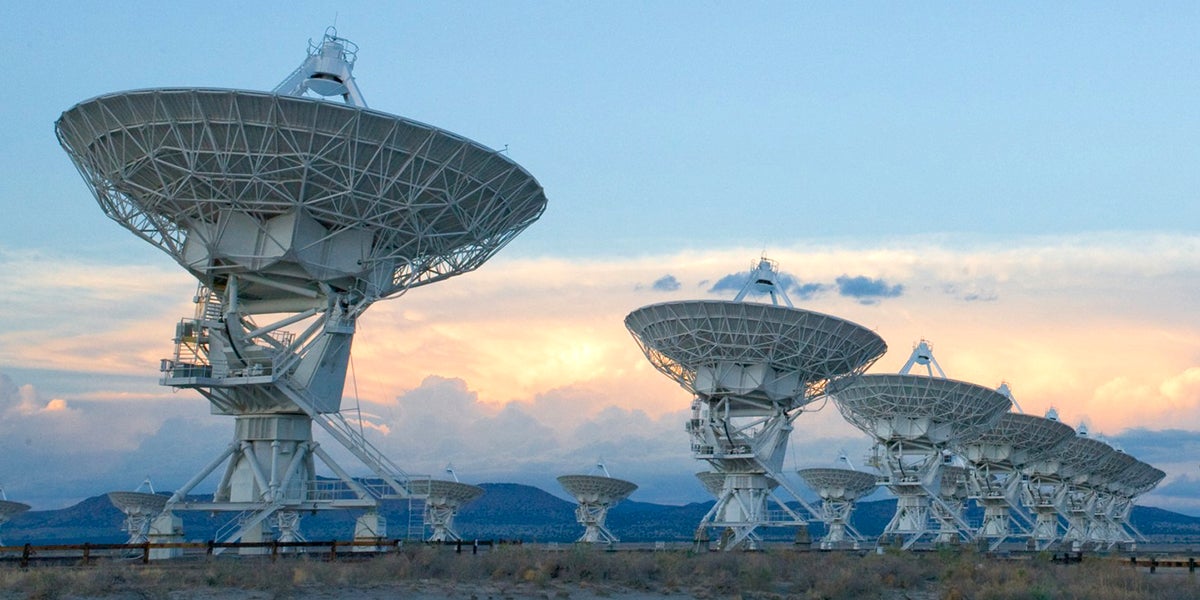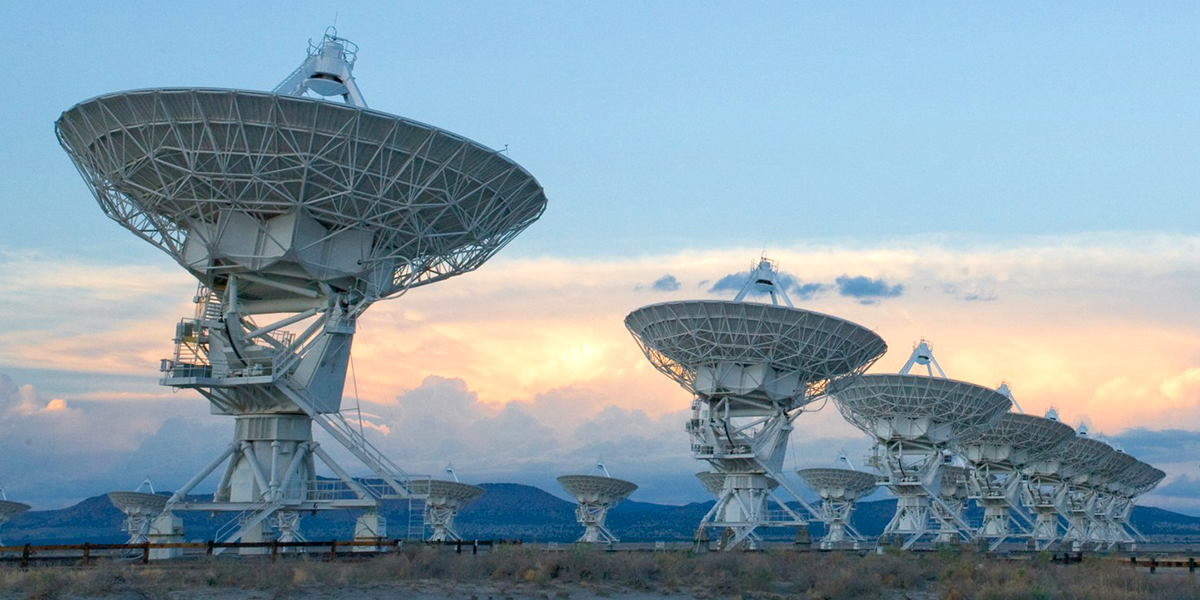
Radio telescopes, such as the dishes of the Very Large Array in New Mexico, can observe during daylight hours. Credit: Alex Savello/NRAO
Can we study the universe in the daytime? It seems astronomical observations usually happen at night.
Rishi Vardhan
Patna, Bihar, India
The first thing you likely think of when you imagine studying astronomy is looking through a telescope at night. The light from planets, stars, and galaxies is faint compared to the nearby Sun, so ground-based observatories do have to wait until nighttime to see them.
But there are other ways to study the universe, and not all of them require darkness. For example, scientists studying the Sun itself use specially constructed solar telescopes during the day when the Sun is visible. Satellites in space also observe our star 24 hours a day. Additionally, some astronomical signals are not affected by sunlight or clouds. Ground-based radio observatories, gravitational-wave observatories, neutrino observatories, and many dark matter experiments can gather data at any time. Some types of gamma-ray observatories can also operate during the day.
It’s worth noting as well that many observatories aren’t on the ground but in space: the Hubble Space Telescope, James Webb Space Telescope, Chandra X-ray Observatory, and more. These can take observations that are not affected by the time of day at a given scientist’s location. They can point at a range of objects with only some limitations based on their current position in space. And the spacecraft we have sent to explore the planets of our solar system — including the many Mars rovers and orbiters, BepiColombo, Juno, and even New Horizons and the Voyagers — constantly send back data, regardless of the time here on Earth.
Alison Klesman
Senior Editor

